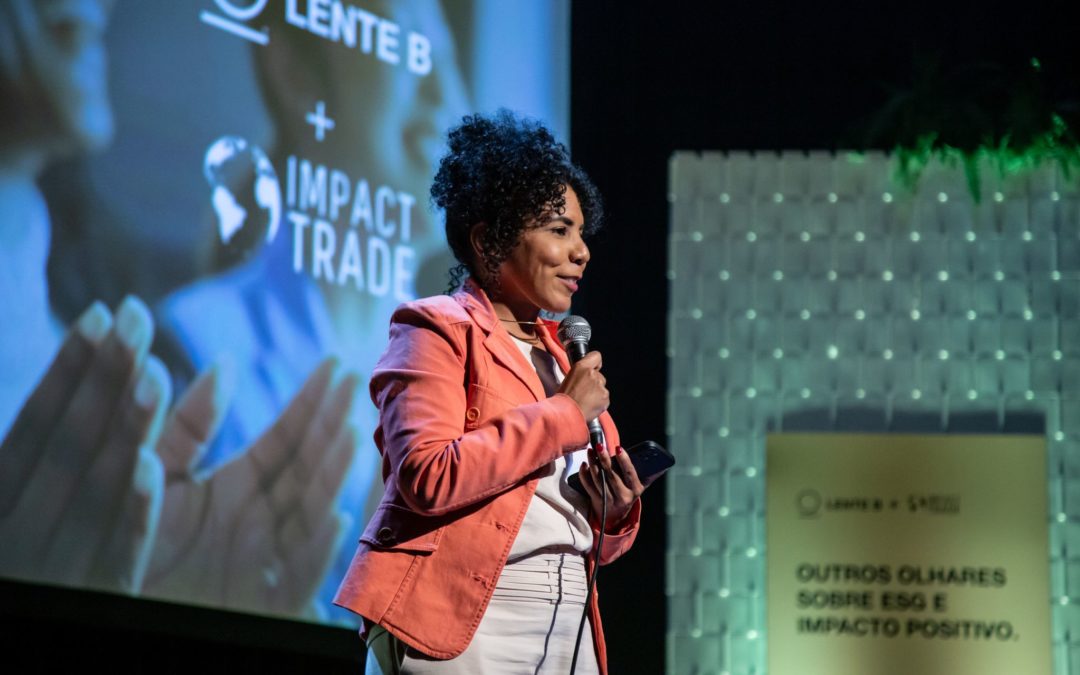This blog post is a translation and adaptation of the original article titled “Porque a luta por diversidade, equidade e inclusão deve continuar,” written by Cinthia Gherardi, Interim Co-Executive Director of Sistema B Brasil, and Adila Nascimento, Operations and Finance Manager of Sistema B Brasil.
Beyond merely assigning company roles, it’s essential to foster spaces where individuals are encouraged to express themselves and where they feel others are actively listening to them.
Today, we can affirm that progress has been made toward a higher representation of women in company leadership positions. As of March 8, 2023, according to gender equity indices shared by the Brazilian Institute of Geography and Statistics (IBGE), women now occupy 39.3% of leadership roles in the public and private sectors.
While this progress is commendable, it’s crucial to pause and delve deeper into the nuances of the fight for gender rights. There is an essential need for focused discussions on the representation of Black, Trans, Indigenous, and Quilombola women in professional business spaces. The urgency of promoting effective actions for genuine progress becomes evident when we scrutinize the numbers.
Breaking It Down
According to the Ministry of Labor’s (MTE) first report on salary transparency, released on March 25 of this year, the disparity in compensation between men (both Black and non-Black) and Black women in executive and managerial positions is as high as 27.9%. While Black women represent nearly a third (29%) of Brazil’s population, according to the IBGE (PNAD, 2022), they hold less than 10% of leadership positions in Brazilian companies, as reported by the UN Global Compact in Brazil. Research further reveals that these women constitute only 16.9% of company payrolls (2.9 million). Notably, these figures flip for entry-level apprentice or trainee roles, which typically require fewer qualifications or less experience.
The law of the land on social optics, heavily influenced by race, social class, and gender—in that order—has shaped our perceptions to such an extent that inequalities pervade all facets of life. Given this conditioning, it is unsurprising to view the job market through a lens of systemic inequality. Discussions around inclusive affirmative action in companies are prevalent, yet we remain distant from achieving our ideals. Although many organizations are making concerted efforts to rectify these injustices, the corporate environment still faces challenges in making material progress, especially where race intersects with other factors.
Getting More Aligned
Race and gender equity programs have made strides in increasing the inclusion of women in the workplace. However, not all women benefit equally. White women are still hired at a rate five times higher than Black women.
To truly create diverse, inclusive, and equitable spaces, we must act swiftly to bridge these disparities. Unearthing these spaces involves leveling the playing field for women and understanding and addressing the complexities that affect women’s experiences and opportunities.
A critical part of this effort lies in asking a few key questions:
• Are organizations genuinely committed to diversity, or are they still primarily focused on fulfilling gender quotas?
• Do discussions on diversity really include the voices of non-White individuals, including Indigenous and Trans women?
Questions on race, class, and gender do not run parallel to each other; rather, they run through each other in complex ways. They crisscross because they are intersectional, so they should not be discussed in isolation. When addressing gender issues within organizations, it’s crucial to consider how they are intertwined with race and class.
The overall approach must become more inclusive and diverse. Birthing this transformation means advocating for a stronger presence of Black women in all aspects of corporate life, from career trajectories to leadership opportunities.
Leading By Example
At Sistema B Brasil, we are deeply committed to advancing social justice initiatives. Our efforts to lead by example include:
• Releasing a manifesto that outlines the B Corporation Movement’s commitments within Brazil.
• Supporting our Pretas B Collective, a safe space for Black women within our organization to convene and share experiences.
• Forming a partnership with the Racial Equity Pact.
• Developing a strategic plan to support Black-owned and underrepresented companies on their impact journeys.
Our executive team reflects the diversity we strive to promote:
• 68% are women.
• 58% are Black, with 50% of them holding leadership positions.
• 21% identify as LGBTQIA+.
• Team members reside in ten cities across all five regions of Brazil.
Embracing diversity within organizations and leadership not only challenges the status quo, but also enriches the workplace with a more inclusive atmosphere by fostering representation and creativity.
Focusing On What Matters
Our commitment to diversity, equity, and inclusion—anchored in the intersectionality of race, class, and gender—must extend beyond routine speeches tied to commemorative dates. It should embody the very principles, discussions, and decisions that drive our daily corporate activities.
Beyond merely assigning company roles, it’s essential to foster spaces where individuals are encouraged to express themselves and where they feel others are actively listening to them.
Have you ever paused to reflect on how your company or organization is intentionally working toward creating a more diverse, equitable, and inclusive environment?




